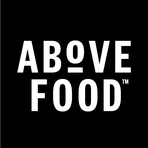Atlantic Natural Foods Pulls the Plug on Acquisition with Above Food
December 24, 2024, 5:41 am

Location: United States, North Carolina, Nashville
Employees: 51-200
Founded date: 2008
In a surprising turn of events, Atlantic Natural Foods (ANF) has terminated its acquisition agreement with Above Food, a vertically integrated plant-based food company. This decision marks a significant shift in the landscape of plant-based food production, a sector already reeling from the aftershocks of the pandemic and rising inflation.
Initially, the acquisition was set to be a game-changer. ANF, known for its shelf-stable brands like Loma Linda®, neat™, and TUNO™, had envisioned a future where it could thrive under the umbrella of Above Food. The deal, first announced in November 2021, promised to create a powerhouse in the plant-based market, allowing Above Food to expand into the lucrative shelf-stable seafood sector. However, the dream has now turned into a mirage.
The decision to withdraw from the agreement was not made lightly. It was a mutual choice, reflecting a strategic realignment in response to the evolving business landscape. The pandemic's grip on global supply chains, coupled with soaring food prices, has forced many companies to reevaluate their strategies. ANF's leadership cited these macroeconomic factors as pivotal in their decision to retreat from the acquisition.
Above Food, which successfully went public on the Nasdaq in July 2024, had been on a growth trajectory. The company aimed to drive positive change across the food chain, promoting sustainable farming methods and ensuring access to nutritious ingredients. Yet, even as Above Food flourished, the challenges facing the industry loomed large. Rising food inflation and supply chain disruptions have cast a long shadow over the sector, prompting ANF to reconsider its future.
ANF's chairman, Doug Hines, emphasized the company's commitment to its core principles. The focus will now shift back to private ownership, allowing ANF to regain control over its operations. The company plans to draw on traditional food preparation methods that have stood the test of time. This approach aims to meet the needs of consumers while reinforcing the brand's identity.
Despite the termination of the acquisition, the two companies will maintain a collaborative relationship. ANF will retain shares in Above Food, ensuring that both parties remain invested in each other's success. This arrangement suggests that while the acquisition may be off the table, the partnership is far from over.
The plant-based food industry has faced a tumultuous few years. Sales have dipped, and investment has waned as consumers become increasingly discerning about their food choices. The trend toward ultra-processed foods has led many to turn their backs on plant-based options, despite the misconceptions surrounding them. Yet, amid these challenges, mergers and acquisitions (M&A) activity has surged within the sector. Companies like Wicked Kitchen and Deliciously Ella have been acquired, highlighting a growing appetite for consolidation.
ANF's decision to withdraw from the acquisition stands in stark contrast to this trend. It raises questions about the future of plant-based companies navigating these turbulent waters. As the industry grapples with inflation and supply chain issues, the path forward remains uncertain.
The challenges facing ANF are not unique. Many companies in the plant-based sector are feeling the pinch. The global food supply chain has become increasingly fragile, and food insecurity is on the rise. In this context, Above Food's mission to ensure access to nutritious ingredients is more critical than ever. However, the termination of the acquisition may signal a shift in strategy for both companies.
As ANF pivots back to private ownership, it will need to adapt to the changing landscape. The company must focus on its core products and consumers while navigating the complexities of the current market. The emphasis on traditional food preparation methods may resonate with consumers seeking authenticity in their food choices.
In conclusion, the termination of the acquisition agreement between Atlantic Natural Foods and Above Food marks a significant moment in the plant-based food industry. It reflects the broader challenges facing the sector, from inflation to supply chain disruptions. As both companies move forward, their ability to adapt and innovate will be crucial. The future of plant-based food is still being written, and the next chapter promises to be as unpredictable as the last.
Initially, the acquisition was set to be a game-changer. ANF, known for its shelf-stable brands like Loma Linda®, neat™, and TUNO™, had envisioned a future where it could thrive under the umbrella of Above Food. The deal, first announced in November 2021, promised to create a powerhouse in the plant-based market, allowing Above Food to expand into the lucrative shelf-stable seafood sector. However, the dream has now turned into a mirage.
The decision to withdraw from the agreement was not made lightly. It was a mutual choice, reflecting a strategic realignment in response to the evolving business landscape. The pandemic's grip on global supply chains, coupled with soaring food prices, has forced many companies to reevaluate their strategies. ANF's leadership cited these macroeconomic factors as pivotal in their decision to retreat from the acquisition.
Above Food, which successfully went public on the Nasdaq in July 2024, had been on a growth trajectory. The company aimed to drive positive change across the food chain, promoting sustainable farming methods and ensuring access to nutritious ingredients. Yet, even as Above Food flourished, the challenges facing the industry loomed large. Rising food inflation and supply chain disruptions have cast a long shadow over the sector, prompting ANF to reconsider its future.
ANF's chairman, Doug Hines, emphasized the company's commitment to its core principles. The focus will now shift back to private ownership, allowing ANF to regain control over its operations. The company plans to draw on traditional food preparation methods that have stood the test of time. This approach aims to meet the needs of consumers while reinforcing the brand's identity.
Despite the termination of the acquisition, the two companies will maintain a collaborative relationship. ANF will retain shares in Above Food, ensuring that both parties remain invested in each other's success. This arrangement suggests that while the acquisition may be off the table, the partnership is far from over.
The plant-based food industry has faced a tumultuous few years. Sales have dipped, and investment has waned as consumers become increasingly discerning about their food choices. The trend toward ultra-processed foods has led many to turn their backs on plant-based options, despite the misconceptions surrounding them. Yet, amid these challenges, mergers and acquisitions (M&A) activity has surged within the sector. Companies like Wicked Kitchen and Deliciously Ella have been acquired, highlighting a growing appetite for consolidation.
ANF's decision to withdraw from the acquisition stands in stark contrast to this trend. It raises questions about the future of plant-based companies navigating these turbulent waters. As the industry grapples with inflation and supply chain issues, the path forward remains uncertain.
The challenges facing ANF are not unique. Many companies in the plant-based sector are feeling the pinch. The global food supply chain has become increasingly fragile, and food insecurity is on the rise. In this context, Above Food's mission to ensure access to nutritious ingredients is more critical than ever. However, the termination of the acquisition may signal a shift in strategy for both companies.
As ANF pivots back to private ownership, it will need to adapt to the changing landscape. The company must focus on its core products and consumers while navigating the complexities of the current market. The emphasis on traditional food preparation methods may resonate with consumers seeking authenticity in their food choices.
In conclusion, the termination of the acquisition agreement between Atlantic Natural Foods and Above Food marks a significant moment in the plant-based food industry. It reflects the broader challenges facing the sector, from inflation to supply chain disruptions. As both companies move forward, their ability to adapt and innovate will be crucial. The future of plant-based food is still being written, and the next chapter promises to be as unpredictable as the last.
